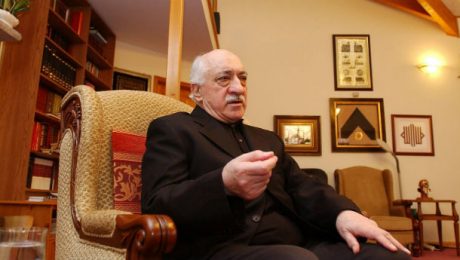Keyword: Asia

Greater Jakarta: Students, parents protest Embassy’s statement
Students and parents at the Turkish-affiliated Pribadi Bilingual boarding school in Depok, West Java, have filed objections over a recent statement from the Turkish Embassy in Jakarta that referred to the school as having links with a terrorist organization.

Astana says Gulen-linked schools to remain
The Ministry of Education of Kazakhstan said in a statement on July 30 that the Turkish schools linked to Fetullah Gülen, who allegedly led failed coup attempt in Turkey according to the President Erdogan, will remain on the territory of the Central Asian nation. The statement followed the Friday warning of Turkey’s ambassador to Kazakhstan.

Kazakhstan and Kyrgyzstan Reject Turkish Calls to Close Gülen Schools
Kazakh authorities said the Gülen schools would remain open. In a statement, the Education Ministry said “These schools (27) will be working as they used to.” The schools were established through a bilateral deal signed by Kazakh president Nursultan Nazarbayev and then-Turkish President Turgut Özal shortly after independence, according to Akipress. Both Kazakhstan and Kyrgyzstan are remaining firm that they will not bend to Ankara’s will on this issue.

Kyrgyz President Atambayev: Ankara should not threaten us with coup
If someone wants to help Kyrgyzstan, this help should be unconditional, the President of Kyrgyzstan Almazbek Atambayev said. “If you set some conditions; then, please, do not help us at all. We are not dictated anything… Do not tell us what we should do. We do not need such aid; then, take it away,” the president added.

Turkish expats in Singapore concerned over state of emergency back home
Dr Nawab says: “What is more accurate is to describe it as a community of people who, perhaps, subscribe to the ideas of Fethullah Gulen. “They put in a lot of effort to integrate within Singapore society. Many of them are married to Singaporeans and are naturalised citizens. I am talking about Turks who would take you to durian parties.”

Ongoing tussle: Students, parents protest closure of Pak-Turk School in Khairpur
“It is a matter of life and death for us and our children. We will not allow anybody to cast an evil eye on this school,” said a woman, whose two children student in the school in Khairpur. She also appealed to the government to not to slaughter “one of the best schools” at the expense of politics.

In Indonesia Turkish schools will not be closed
State Secretary Pramono Anung acknowledged Ankara’s statement on the affiliation of schools in Indonesia with the coup masterminds, but also said there was never any formal request from Turkey to shut down the school. Pramono indicated the government’s concern about Turkey interfering in domestic affairs.

Fethullah Gulen: I am not hiding and not on the run
Sherko Hama Amin, a member of the Kurdistan Parliament’s Education Committee, told NRT that schools should not be shut down over political reasons, especially a political issue outside the region. The Turkish government has previously, even before the July 15 military coup attempt, called on the KRG to close schools connected to the Gulen movement in the region.

Turkish schools issue [in Pakistan] still to be resolved
The official demand has now apparently been watered down to transfer ownership/administration of these educational institutions to the official Maarif Foundation tasked by the Turkish government to encourage foreign governments to seize other Turkish educational foundations operating in those countries, possibly targeting enterprises run by individuals close to US-based Islamic scholar Fethullah Gulen.

Indonesia rejects intervention over schools’ alleged links with Gulen
Indonesia rejects any intervention with the country’s internal affairs including over alleged links of a number of Indonesian Islamic boarding schools with Fethullah Gulen, a popular imam, accused by the Turkish government of masterminding a recent failed coup attempt. Cabinet Secretary Pramono Anung said here on Friday Indonesia is a democratic country that consistently adopts active and independent policy.

Turkey urges KRG to consider Gulen Movement a “Terrorist Organization”
The KRG Ministry of Education said it would abide by any decision made by the KRG Council of Ministers concerning the closure of the organization’s schools in the Kurdistan Region. Sherko Hama Amin, a member of the Kurdistan Parliament’s Education Committee, told NRT that schools should not be shut down over political reasons, especially a political issue outside the region.

How Kyrgyzstan and Turkey quarreled about Gülen
An analyst Dosmir Uzbekov believes that the closure of a wide network of schools and high schools “Sebat” will cause outrage among the population. “My son has graduated from Turkish lyceum, and I am very pleased with the education he received there. “Sebat” has become an inherent part of the education system of Kyrgyzstan.

Gulen-linked RI schools remain calm amid coup in Indonesia
Two students wearing red long-sleeve shirts combined with checkered skirts were chatting fluently in English while playing at the grounds of Kharisma Bangsa Bilingual boarding school on Tuesday afternoon. Meters away, in a guest room within the school’s lobby, a parent was speaking with a Turkish teacher.

Kyrgyzstan: Antagonism Grows with Turkey Over Gülen Links
In the eyes of the government of Turkey, where Gülen is from, the sprawling building immaculately cast in the bright colors of the red Kyrgyz flag is little short of an incubator of terrorism and plots to subvert the state. Ankara’s antagonism to Gülen’s international influence has deep roots, and the Turkish government’s attempt to link the educator with the recent failed coup is intensifying that animosity. But Kyrgyzstan, which is host to at least a dozen Gülen-linked schools and one university, is holding its ground — up to a point.


















